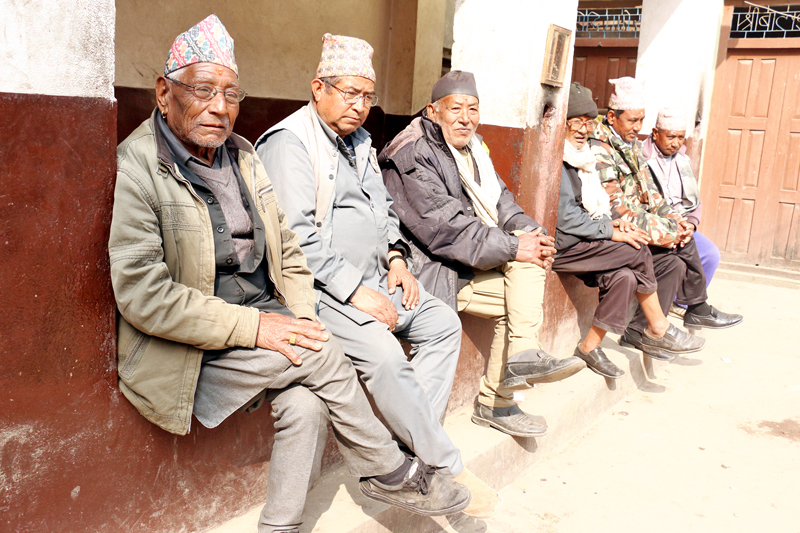Senior citizens neglected during earthquakes, shows study
Kathmandu October 2
The voice of senior citizens remains unheard and there is hardly any reference to them during disasters, a recently concluded research reveals.
“Content analysis after the earthquakes in 2015 for a period of three months shows that hardly thirty-six news stories in relation to senior citizens were recorded from three leading Kathmandu-based newspapers,” said researcher Chun Bahadur Gurung presenting a paper ‘Media response to older people during disaster’.
“While a privately run daily Nepali language newspaper covered 59 per cent of the total stories and an English daily 14 per cent, the government run newspaper only rain 27 per cent of the stories,” he added at a programme organised by Rights and Dignity Centre on the occasion of International Day of Older People.
Another analysis also corroborates it as press contents from eleven outlets analysed after the earthquake found no reference to senior citizens.
The research findings have also been substantiated with a study on elderly abuse by the National Human Rights Commission as issues of abuses were rarely reported by the press unless it took some form of a criminal case. Interestingly, the stories reported were treated as fillers.
“But most of the senior citizens during disaster rely on family, friends and neighbours for the life-saving information during rescue phase,” stated Gurung, “Majority of the sampled respondents – 62.20 per cent relied on family, friends and neighbours for life saving information and 22.83 per cent of them on local FM radio.”
According to RDC, it also challenges the international media portrayal over the disaster-affected communities, including senior citizens, as they tend to portray disaster-affected communities as helpless and saved only by outside aid. The demographic indicators indicate globally that the planet is likely to become a “world of older people” and Nepal is no exception, RDC stated.






